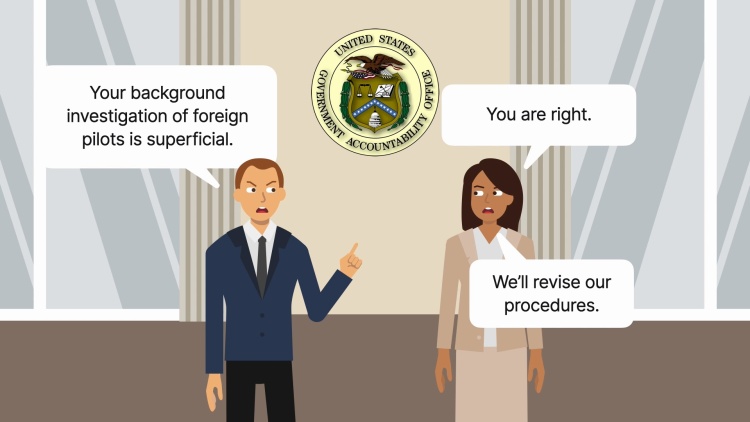Olivares v. Transportation Security Administration
United States Court of Appeals for the District of Columbia Circuit
819 F.3d 454 (2016)

- Written by Sean Carroll, JD
Facts
Alberto Olivares (plaintiff), a Venezuelan national, applied to attend a Federal Aviation Administration flight school to become a certified pilot in the United States. The Transportation Security Administration (TSA) (defendant) was responsible for reviewing such applications and was required to deny any application of a foreign national who the TSA determined presented a risk to aviation or national security. The TSA conducted a background check as part of its review and found that Olivares had been convicted of conspiracy with intent to distribute a controlled substance, had been accused of firearms trafficking in Aruba, and, despite being deported after his drug conviction, had maintained a residence in the United States. Based on these factors, the TSA determined that Olivares presented a risk to aviation or national security and denied the application. The TSA sent Olivares an email stating that the application was denied because “TSA is unable to determine that you do not pose a threat to aviation or national security.” Olivares filed suit appealing the decision on the ground that the TSA violated the Administrative Procedure Act (APA) by not providing a statement of the grounds for denial. After the suit was filed, the TSA filed a declaration with the court, fully explaining the agency’s ground for denying Olivares’s application, including references to internal materials such as Olivares’s background check that the TSA had at its disposal at the time it made the decision.
Rule of Law
Issue
Holding and Reasoning (Edwards, J.)
What to do next…
Here's why 907,000 law students have relied on our case briefs:
- Written by law professors and practitioners, not other law students. 47,100 briefs, keyed to 996 casebooks. Top-notch customer support.
- The right amount of information, includes the facts, issues, rule of law, holding and reasoning, and any concurrences and dissents.
- Access in your classes, works on your mobile and tablet. Massive library of related video lessons and high quality multiple-choice questions.
- Easy to use, uniform format for every case brief. Written in plain English, not in legalese. Our briefs summarize and simplify; they don’t just repeat the court’s language.





